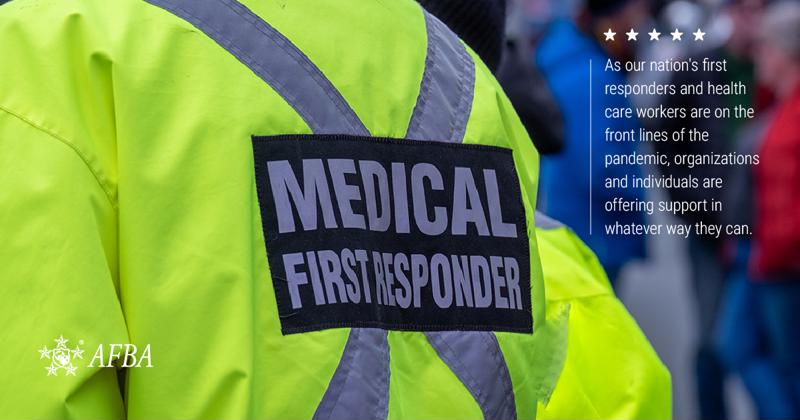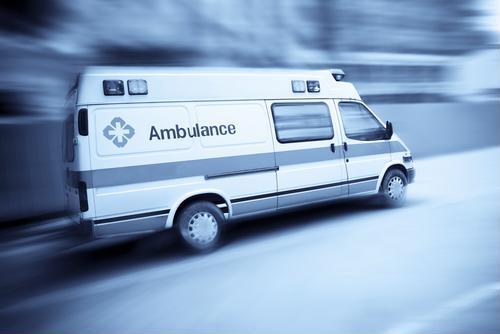The COVID-19 national emergency has been immensely demanding on the community of U.S. emergency responders and health care workers. For many, traumatic stress in the workplace is being compounded by an unprecedented lack of normalcy at home. There, first responders and health care professionals must contend with the personal difficulties of social distancing, disruptive closures of schools and businesses, and the extreme economic uncertainty that may have a direct negative impact on family and friends.
As our nation's heroic first responders and health care heroes are fighting on the front lines of the pandemic, countless organizations and individuals are offering support services in whatever ways they can. This brief list aims to assist those participating in or impacted by the national response to COVID-19 by providing authoritative support resources during this challenging time — and by highlighting the fact that there are many resources available for all aspects of life.

Workplace resources
In addition to comprehensive guidance for the general public, the Centers for Disease Control and Prevention have published a collection of Resources for First Responders and Law Enforcement. These include advice for workers in the fields of law enforcement, emergency medicine, fire services and emergency management who may come into contact with citizens potentially experiencing COVID-19 symptoms.
The Occupational Safety and Health Administration has published COVID-19 Standards, including a section on workers' rights and employers' responsibilities that discusses OSHA's Whistleblower Protection Program and the prohibitions against employer retaliation in the event that a safety or health complaint is filed.
Mental health resources
The Minnesota Department of Health's COVID-19 Responder Self-Triage daily checklist is designed to help emergency workers and health care professionals recognize and manage high levels of stress, including exposure to traumatic stress. As the document explains, "Understanding your trauma risk will help you realize when you need to activate stress management activities to increase your resilience."
The National Suicide Prevention Lifeline maintains a resource hub related to Emotional Wellbeing During the COVID-19 Outbreak. People in crisis can speak with mental health counselors on a 24/7 basis at 1-800-273-8255 or through a live chat.
Family resources
The National Association of School Psychologists has published a guide titled Helping Children Cope With Changes Resulting From COVID-19. This includes strategies for discussing the coronavirus outbreak with children in a way that reduces stress and fear and helps younger family members feel informed, reassured and safe.
Similarly, Talking With Children: Tips for Caregivers, Parents, and Teachers, During Infectious Disease Outbreaks, produced by the Substance Abuse and Mental Health Services Administration, outlines how children at different ages may behave in response to a crisis like COVID-19, offering age-appropriate communication advice for adults.
Financial resources
Local nonprofits and organizations around the country have come together in support of those experiencing financial hardships. The Community Foundation Public Awareness Initiative is maintaining a list of organizations in each state committed to providing COVID-19 relief funds and other support resources.
First responder families experiencing financial difficulties can apply for individual grants through the COVID-19 Emergency Response Fund, operated by the First Responders Children's Foundation. The organization is currently working to raise $200 million to support impacted families.
Information regarding Coronavirus Tax Relief and Economic Impact Payments can be found on the IRS website. Payments are being issued on a rolling basis beginning in April 2020; no action is required for most individuals and families. Additionally, the tax filing deadline has been pushed to July 15, 2020.
To learn more about first responder financial benefits available through AFBA, read our recent message to members or contact a customer service agent. You can reach us by emailing [email protected] or calling 1-800-776-2322.


